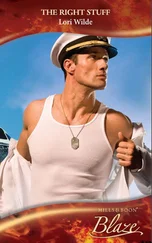Tom Wolfe - The Right Stuff
Здесь есть возможность читать онлайн «Tom Wolfe - The Right Stuff» весь текст электронной книги совершенно бесплатно (целиком полную версию без сокращений). В некоторых случаях можно слушать аудио, скачать через торрент в формате fb2 и присутствует краткое содержание. Жанр: Современная проза, на английском языке. Описание произведения, (предисловие) а так же отзывы посетителей доступны на портале библиотеки ЛибКат.
- Название:The Right Stuff
- Автор:
- Жанр:
- Год:неизвестен
- ISBN:нет данных
- Рейтинг книги:3 / 5. Голосов: 1
-
Избранное:Добавить в избранное
- Отзывы:
-
Ваша оценка:
- 60
- 1
- 2
- 3
- 4
- 5
The Right Stuff: краткое содержание, описание и аннотация
Предлагаем к чтению аннотацию, описание, краткое содержание или предисловие (зависит от того, что написал сам автор книги «The Right Stuff»). Если вы не нашли необходимую информацию о книге — напишите в комментариях, мы постараемся отыскать её.
The Right Stuff — читать онлайн бесплатно полную книгу (весь текст) целиком
Ниже представлен текст книги, разбитый по страницам. Система сохранения места последней прочитанной страницы, позволяет с удобством читать онлайн бесплатно книгу «The Right Stuff», без необходимости каждый раз заново искать на чём Вы остановились. Поставьте закладку, и сможете в любой момент перейти на страницу, на которой закончили чтение.
Интервал:
Закладка:
Glenn and Carpenter were even willing guinea pigs for the two psychiatrists who had just come on board, Sheldon Korchin from the University of California and George Ruff, who had been in charge of the psychiatric testing at Wright-Pat. Both men were likable enough as individuals, but this thing of submitting to psychiatric study seemed dispensable to some of the boys, particularly Schirra and Cooper. The two psychiatrists were continually having you urinate into bottles so that they could analyze your urine for corticosteroid levels, which supposedly were an index of stress. But Carpenter thought this was terrific stuff, too. He even talked to them about it!
What some of the other five found eccentric in Carpenter was what Glenn (and the doctors) found interesting. Scott was about the only one you could sit down with and talk about the broader and more philosophical sides of Project Mercury and space exploration. Scott was the only one with a touch of the poet about him, in the sense that the idea of going into space stirred his imagination. He would even go out at night and prop a telescope up on top of his car on a tripod and just stargaze and let himself drift into the most profound speculation of astronomy: What is my place in the cosmos ?
Just try to imagine Grissom doing that! If Gus had a telescope, he might use the small end of it to try to whack a turkey joint out of the maw of the Disposall if the thing was stuck, but that would be the end of that. Gus and Deke were the duo at the other end of the spectrum. The main thing was to ride the bird up there into space and get the job done and get back, and let's hold the Mickey Mouse down to a minimum.
Shepard and Wally Schirra were paired somewhere in between. It was not that they were inseparable pals or even buddies, however. Shepard had no intimates, so far as anyone knew, and Schirra probably spent as much time wondering what made Shepard tick as the rest of them did. It was just that they came into the astronaut corps with similar backgrounds. There was no particular advantage to forming a clique in this seven-man corps, because only one man could win the competition, i.e., get the first flight, and it wasn't a voting situation, in any case. Nevertheless, if any such situation came up, Al and Wally would probably tend to side with Deke and Gus… As for Gordon Cooper, he seemed to be regarded as the odd man out. One got the impression that he was not in the running. As far as Gordo himself was concerned, however, he sided with Gus and Deke and Al and Wally on most of the pertinent questions, from the business of medical experiments to life after hours.
They were all beginning to realize that the stakes were tremendous. With the first flight into space, the holy first flight, one of them would become not only the pre-eminent astronaut … but also the True Brother at the top of the entire pyramid. The first American into space—who might very well be the first human being to go into space—would have an eminence that not even Chuck Yeager had ever enjoyed, because he would belong not just to the history of aviation but to world history.
And who would this one man be? Well… who else would it be but John Glenn! Glenn was just pouring it on. He was even assuming the role of natural group leader—giving them a little moral lecture at the seances!
The begrudging consensus that had developed from the Konakai seance was that, yeah, Glenn was right; they ought to watch themselves a little more carefully. But Al Shepard, for one, was not the type to let Glenn get away with it unmarked. Al kept putting the needle in. If there was anyone else around to enjoy it, Al would say to Glenn: "John, I think you need to loosen up a little bit, boy. What you need is a sports car. Why don't you get rid of that junk heap you're driving and do a little rat-racing. It'll do you good, John."
Al never missed an opportunity to stick it to Glenn about his terrible-looking underpowered Prinz and his need to get a car with a little more juice and loosen up. It became a refrain. Glenn knew how to roll with this kind of ribbing and grin through it. At the same time, you could tell it was getting under his skin. You couldn't help but get the feeling that the piece of equipment Al was really saying Glenn should loosen up and turn on the juice with was not an automobile.
One morning, when they came into the Astronaut Office, there was a big inscription up on the blackboard:
DEFINITION OF A SPORTS CAR: A HEDGE AGAINST THE MALE MENOPAUSE.
8 — The Thrones
In the eyes of the engineers assigned to Project Mercury the training of the astronauts would be the easy task on the list. Naturally you needed a man with the courage to ride on top of a rocket, and you were grateful that such men existed. Nevertheless, their training was not a very complicated business. The astronaut would have little to do in a Mercury flight except stand the strain, and the engineers had devised what psychologists referred to as "a graded series of exposures" to take care of that. No, the difficult, the challenging, the dramatic, the pioneering part of space flight, as the engineers saw it, was the technology.
It was only thanks to a recent invention, the high-speed electronic computer, that Project Mercury was feasible at all. There was an analogy here with the great Admiral of the Seas himself, Columbus. It was only thanks to a recent invention of his day, the magnetic compass, that Columbus had dared to sail across the Atlantic. Until then ships had stayed close to the great land masses for even the longest voyages. Likewise, putting a man into space the quick and dirty way without high-speed computers was unthinkable. Such computers had not been in production before 1951, and yet here it was, 1960 and engineers were already devising systems for guiding rockets into space, through the use of computers built into the engines and connected to accelerometers, for monitoring the temperature, pressure, oxygen supply, and other vital conditions of the Mercury capsule and for triggering safety procedures automatically—meaning they were creating, with computers, systems in which machines could communicate with one another, make decisions, take action, all with tremendous speed and accuracy…
Oh, genius-engineers!
Ah, yes, there was such a thing as self-esteem among engineers. It may not have been as grandiose as that of fighter jocks… nevertheless, many was the steaming enchephalitic summertime Saturday night at Langley when some NASA engineer would start knocking back that good sweet Virginia A.B.C. store bourbon on the patio and letting his ego out for a little romp, like a growling red dog.
The glorification of the astronauts had really gotten out of control! In the world of science—and Project Mercury was supposed to be a scientific enterprise—pure scientists ranked first and engineers ranked second and the test subjects of experiments ranked so low that one seldom thought about them. But here the test subjects… were national heroes! They created a zone of awe and reverence wherever they set foot! Everyone else, whether physicist, biologist, doctor, psychiatrist, or engineer, was a mere attendant.
At the outset it had been understood—it didn't even require comment—that the astronauts would be just that: test subjects in an experiment. Mercury was an adaptation of the Air Force's Man in Space Soonest concept, in which you would attach biosensors to your human subject, seal him up in a capsule, propel him into space ballistically—i.e., like an artillery shell—and bring him back to earth with completely automatic guidance and see how he made out. In November 1959, six months after the seven astronauts were chosen, Randy Lovelace and Scott Crossfield presented a paper at an aerospace medical symposium in which they said that biomedical research was "the sole purpose of the ride," so far as having an astronaut on board was concerned. They added that an aerodynamic space vehicle, such as the proposed X-15B or X-20, would require "a much more highly trained pilot." Since he was involved in the X-15 project, Crossfield had his own ax to grind, but what he and Lovelace were saying was perfectly obvious to any engineer who knew the difference between ballistic and aerodynamic space vehicles. In short, the astronaut in Project Mercury would not be a pilot under any conventional definition.
Читать дальшеИнтервал:
Закладка:
Похожие книги на «The Right Stuff»
Представляем Вашему вниманию похожие книги на «The Right Stuff» списком для выбора. Мы отобрали схожую по названию и смыслу литературу в надежде предоставить читателям больше вариантов отыскать новые, интересные, ещё непрочитанные произведения.
Обсуждение, отзывы о книге «The Right Stuff» и просто собственные мнения читателей. Оставьте ваши комментарии, напишите, что Вы думаете о произведении, его смысле или главных героях. Укажите что конкретно понравилось, а что нет, и почему Вы так считаете.











